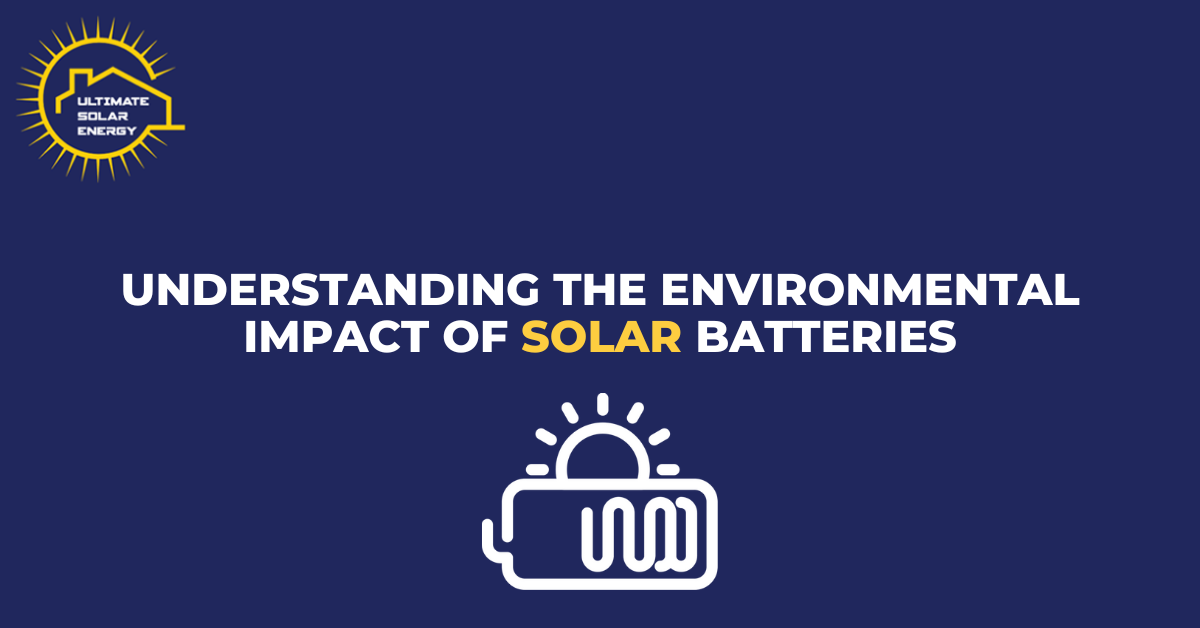Understanding the Environmental Impact of Solar Batteries
Due to feasibility and good power backup support, commercial and residential consumers prefer solar batteries over conventional lead-acid batteries. However, many people are concerned about their environmental impact and true sustainability. So, to understand whether solar batteries are eco-friendly or not? Let’s first explore how they function.
Solar batteries operate in couple with solar panels and inverters and store surplus energy generated by solar PV systems. These batteries serve as power storage pools that offer electricity for later use. Solar batteries enhance consumers’ power independence, reduce their reliance on grid power, lower conventional electricity bills, and offer consistent and clean power backups during grid power outages, making these power houses more valuable additions to sustainable energy solutions.
Why Solar Batteries Are Popular?
Solar batteries play a vital role in leveraging the utility of solar energy. Since solar panels produce electricity that is limited to daytime, solar batteries assist consumers in saving excess power. This usage suitability makes solar batteries a popular choice around the globe.
The Environmental Advantages of Solar Batteries
- Lowers Greenhouse Gas Emissions
One of the primary environmental benefits of solar batteries is their contribution to plummeting greenhouse gas emissions. These gases are harmful to the environment and their excess in the atmosphere cause global warming which is a rise in the earth’s temperature. These power backups store excess power that can be used during night hours, power outages, or cloudy days. And enables households and businesses to be more power efficient, results in less carbon footprint, and eventually reduces the worst climate change impact.
- Make Solar Consumers More Power Independent
Solar batteries are excellent options that reduce solar consumer grid dependence and make them more power efficient. During emergencies or power outages, solar batteries supply consistent power supply backup without depending on conventional fuel generators, decreasing air pollution and dependency on non-renewable resources.
- Efficient Energy Use
Solar batteries store excess energy rather than waste it and hence promote efficient energy use for homeowners and businesses. This efficiency diminishes the overall demand for all the time energy generation, which can have positive environmental effects.
- Load Diversion
Solar batteries assist consumers in power shifting, reduce costs, and ease peak hour strains. The load diversion also helps solar consumers save many bugs on conventional electricity bills.
- Decreases Power Transmission Loss
As solar batteries offer clean backup power, they decrease the chances of power losses during transmission or system efficiency improvement.
- Extend Solar Panel Lifespan
Solar batteries augment the life of solar panels as well. These energy backups lower electronic waste.
- Facilitate Renewable Adoption
Solar batteries promote a more expansive adoption of clean power sources, reducing conventional fuel dependency.
- Foster Sustainability
Solar batteries elevate sustainable energy practices and environmental awareness.
Environmental Concerns and Considerations
Although solar batteries offer several environmental benefits, there are a few concerns and considerations:
- Manufacturing Process
Solar batteries have lithium ions as the base material which stores energy. The lithium extraction involves mining and processing. These processes require extreme precautions and run on fossil fuels that increase carbon footprint and harmful gases in the environment. So, the manufacturing process of solar batteries if not managed responsibly, may have negative social and environmental impacts.
- Recycling of Solar Batteries
Recycling of discharged solar batteries requires a proper protocol and should be done in a protected vicinity to avoid exposure to hazardous material. Therefore, to protect the environment from unsafe materials, it is necessary to recycle solar and dispose of solar batteries carefully.
- Energy Efficiency
The overall environmental impact of solar batteries depends on their energy efficiency and lifespan. Environmental impact assessments showed that high-end solar batteries with extended lifespans are likely to have a lower carbon footprint over a lifetime.
- Supply Chain Considerations
Solar battery manufacturers should consider sustainable supply chain practices to curtail the environmental impact associated with the production, recycling, and transportation of batteries.
- Fire Risk
Lithium-ion batteries, when overcharged, damaged, or exposed to high temperatures, explode or catch fire easily. Burned lithium liberates harmful chemicals and pollutants into the air, leading to environmental pollution.
Final Thoughts
Solar batteries play a crucial role in capitalizing on solar PV systems and assist in reducing solar consumer reliance on fossil fuels. While solar power batteries offer several environmental benefits, it is essential to use them with a holistic perspective, considering the entire life cycle of batteries, from manufacturing to disposal. Solar manufacturers play a significant role through responsible manufacturing methods to sustain more efficient solar power usage. Also, solar consumers can also contribute to eco-friendly methodologies by adopting proper recycling practices, to further enhance the environmental sustainability of solar batteries.
At Ultimate Solar Energy, we make your decision-making process so simple. We design customized solutions based on your requirements, using only the most premium products.
Get a Free Quote now!

